The Best Cars for Delivery Drivers: Fuel Efficiency and Cargo Space
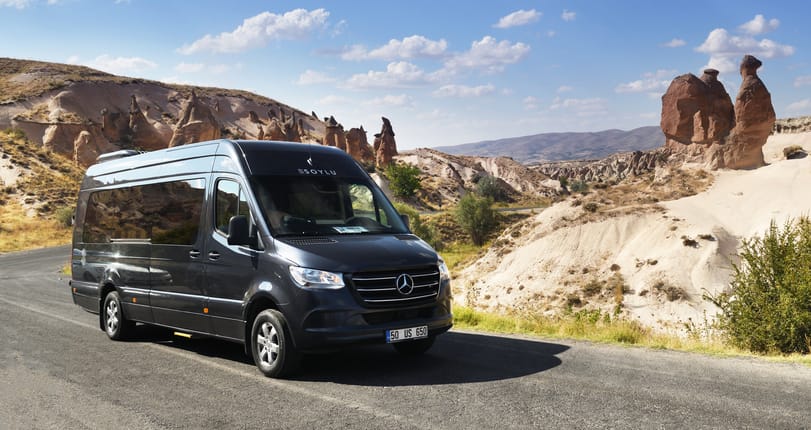
For delivery drivers, their car is their livelihood. It's the trusty steed that carries them through countless stops, battling city traffic or conquering long highways. But unlike a personal car, a delivery vehicle needs to strike a perfect balance between two key aspects: fuel efficiency and cargo space. After all, saving money on gas keeps more in your pocket, while sufficient cargo space ensures you can fulfill every delivery without a hitch.
This article dives deep into the best car options for delivery drivers, considering both fuel efficiency and cargo capacity. We'll explore a range of vehicles, from classic choices to new electric contenders, catering to both solo drivers and those with larger deliveries.
The All-Time Favorite: Fuel-Sipping Champions
Let's face it, delivery drivers spend a significant amount of time on the road. So, maximizing fuel efficiency is a top priority. Here are some undisputed champions in the fuel-efficient category:
- Toyota Prius: This iconic hybrid remains a top choice for a reason. It delivers exceptional fuel economy (around 58 mpg in city driving), making it a gas-saving champion. Plus, its reliability and spacious hatchback design offer practicality for deliveries.
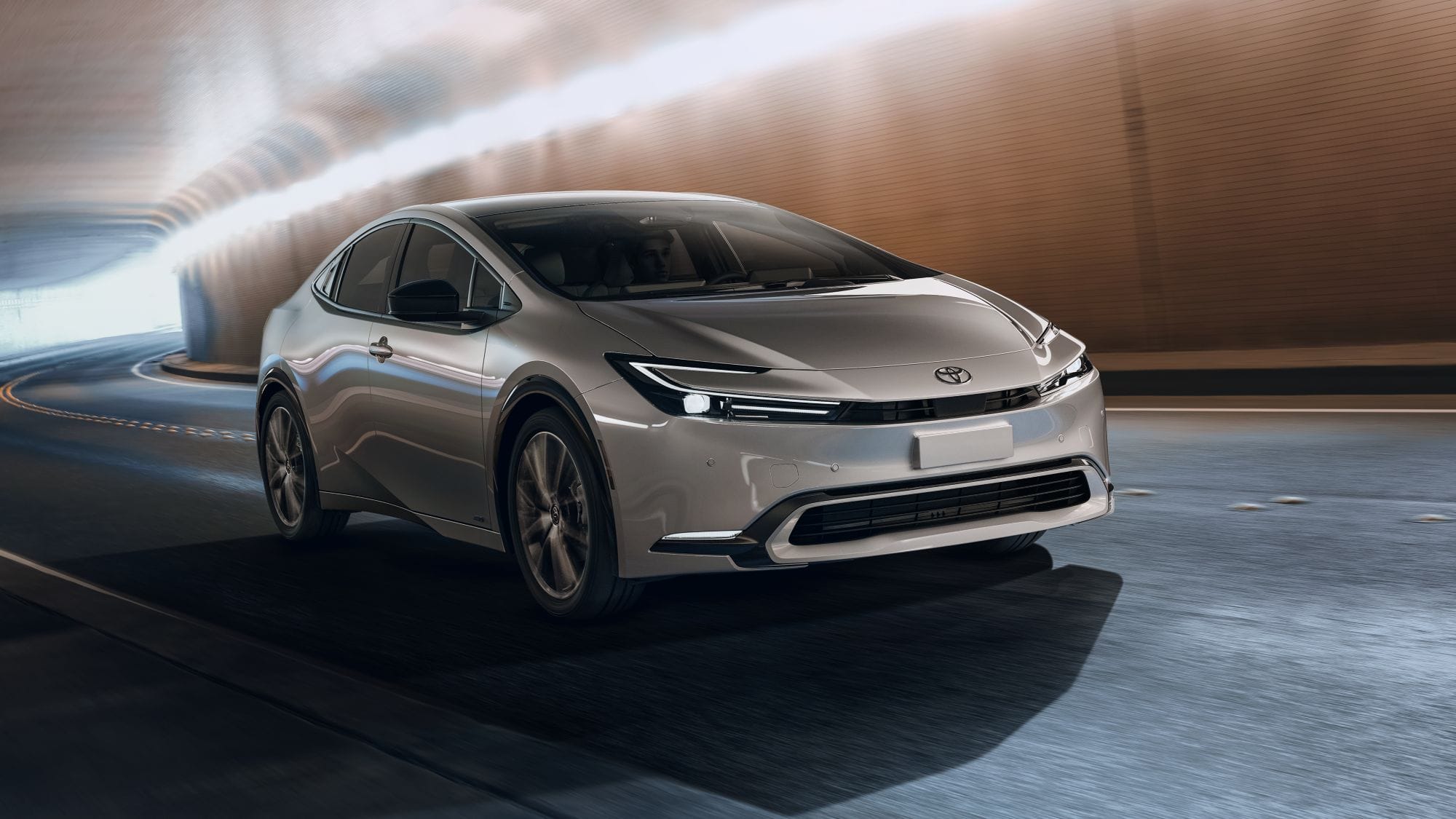
- Hyundai Sonata Hybrid: This mid-size sedan offers a comfortable ride alongside excellent fuel efficiency (around 52 mpg combined). The spacious trunk provides ample room for most delivery needs, and the hybrid powertrain ensures you won't be breaking the bank at the pump.

- Honda Fit: This subcompact hatchback is a fuel-efficient wonder, achieving up to 40 mpg combined. Its cleverly designed interior offers surprising cargo flexibility, making it perfect for smaller deliveries in tight city spaces.
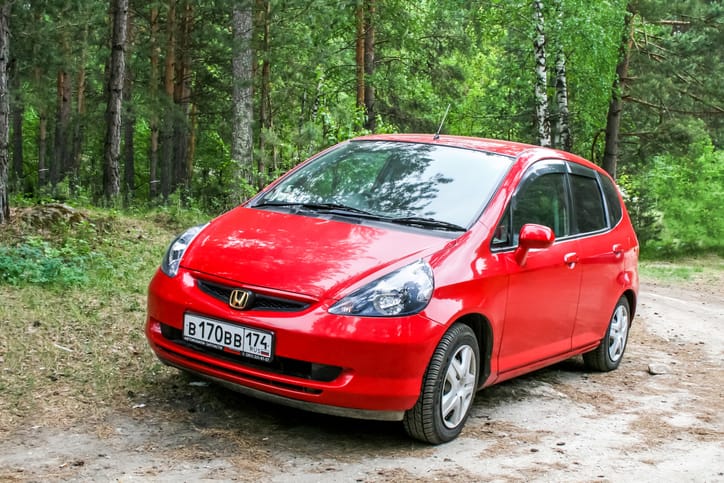
- Chevrolet Bolt EV: Ready to embrace the electric revolution? The Chevrolet Bolt EV boasts an impressive range of around 259 miles on a single charge, eliminating gas station visits altogether. While cargo space might be slightly less than some gas-powered options, it's still suitable for most everyday deliveries.

Finding the Balance: Value Meets Space
For some delivery drivers, especially those dealing with bulkier items, cargo space becomes a bigger priority. Here are some options that offer a good balance between affordability, fuel efficiency, and cargo capacity:
- Ford Transit Connect: This compact cargo van is a popular choice for its functionality. It offers a spacious cargo area, easy access thanks to sliding doors, and decent fuel economy for its size (around 25 mpg combined).
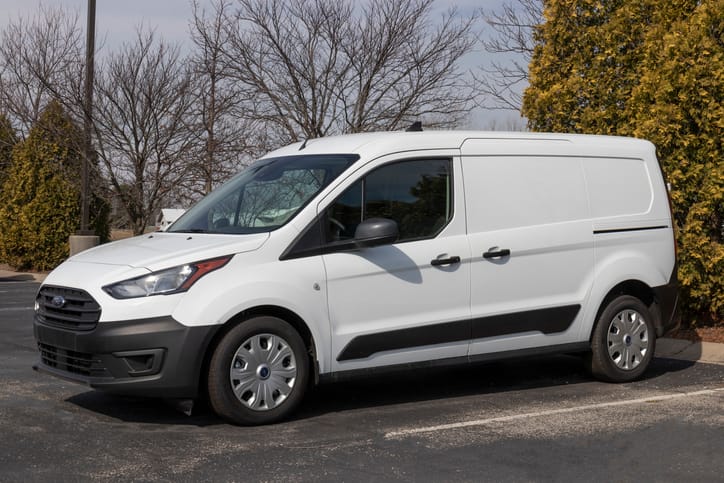
- Nissan NV200: Another excellent choice in the compact van segment, the NV200 boasts a boxy design that maximizes cargo space. While fuel efficiency isn't stellar (around 24 mpg combined), its affordability and practicality make it a strong contender.

- Honda HR-V: This subcompact SUV offers a surprising amount of cargo space with the rear seats folded down. It also delivers decent fuel economy (around 30 mpg combined), making it a well-rounded option for delivery drivers who need a balance of space and efficiency.
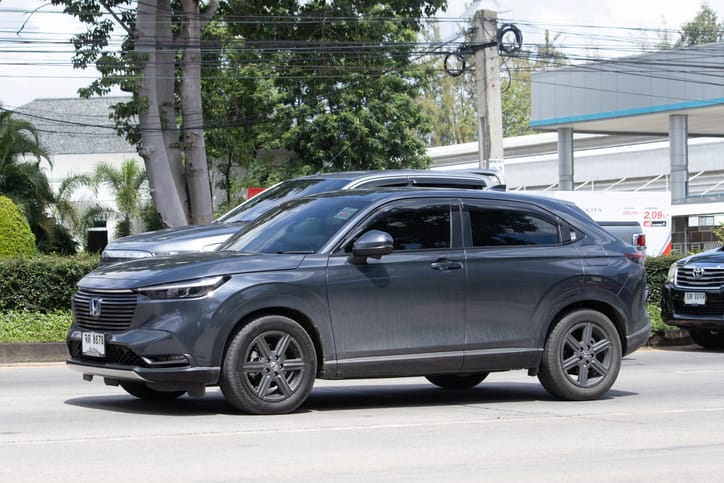
Power Up for Bigger Hauls: Trucks and Full-Size Vans
For those dealing with truly large deliveries, full-size vans and trucks become a necessity. Here are some options that offer the muscle and space to handle the job:
- Ford F-150: The iconic F-150 truck provides unmatched cargo capacity and towing capability. While fuel efficiency isn't its strong suit, the option for a hybrid powertrain in some models offers a potential compromise.

- Ram ProMaster: This full-size cargo van delivers the ultimate in cargo space, perfect for large deliveries or businesses with multiple drivers. It offers decent fuel economy for its size (around 19 mpg combined) and customizable configurations to maximize functionality.
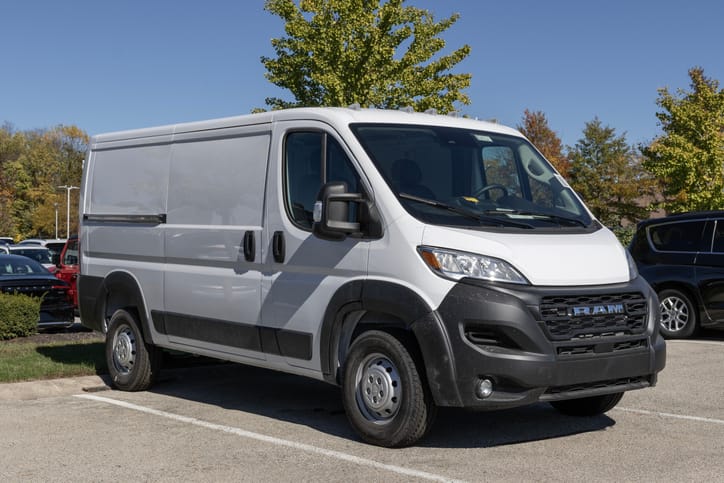
- Mercedes-Benz Sprinter: A premium option in the full-size van segment, the Sprinter offers impressive cargo space, powerful engines, and a comfortable driving experience. However, its fuel efficiency falls short compared to some competitors, and the higher price tag may not be suitable for everyone.
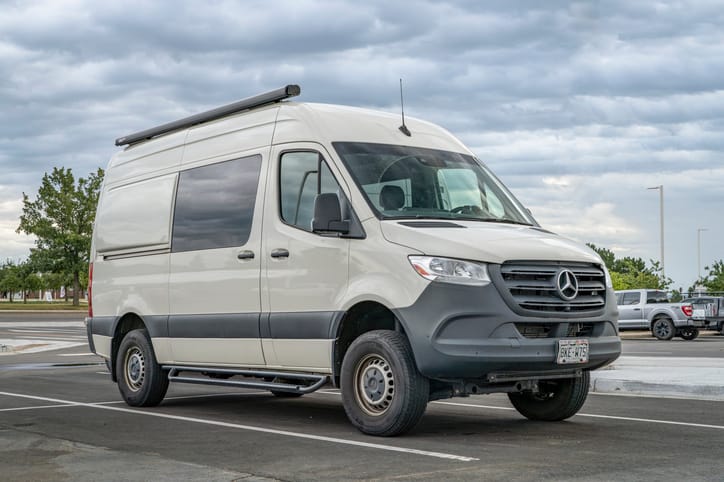
Choosing the Right Fit: Factors Beyond Specs
While fuel efficiency and cargo space are crucial considerations, several other factors can impact your decision:
- Delivery Type: City driving demands prioritize fuel efficiency and maneuverability. Conversely, long highway stretches might benefit from a larger, more comfortable vehicle.
- Comfort and Ergonomics: Long hours behind the wheel necessitate a comfortable seating position and good ergonomics. Consider features like adjustable seats, lumbar support, and cruise control.
- Maintenance Costs: Reliable vehicles with readily available parts and affordable maintenance costs are ideal for delivery drivers. Research reliability ratings before making a choice.
- Technology Features: Consider features like Bluetooth connectivity for hands-free calling and navigation systems that can optimize delivery routes.
The Future of Delivery Vehicles: Electric on the Rise
The landscape of delivery vehicles is rapidly evolving, with electric cars and vans emerging as strong contenders. Here's a glimpse into the future of electric delivery vehicles:
- Range Anxiety Mitigation: A major concern with electric vehicles (EVs) has been range anxiety – the fear of running out of power before reaching a charging station. However, advancements in battery technology are steadily increasing the range of EVs. Delivery companies are also strategically placing charging stations within their operating areas, reducing range anxiety for drivers.
- Government Incentives: Many governments are offering tax breaks and other incentives to encourage the adoption of electric vehicles. These incentives can significantly reduce the upfront purchase cost of EVs, making them a more attractive option for delivery drivers and fleet operators.
- Focus on Sustainability: Environmental consciousness is a growing priority for both consumers and businesses. Delivery companies are increasingly adopting electric vehicles to reduce their carbon footprint and promote a more sustainable delivery process. This focus on sustainability can also improve a company's brand image and attract environmentally conscious customers.
- Innovation in Design: Automakers are specifically designing electric vehicles for delivery purposes. These new models boast features like optimized cargo space, low floor heights for easier loading and unloading, and innovative compartment designs for temperature-controlled deliveries.
- Subscription Services: Delivery companies are exploring subscription services for electric vehicles. This allows them to access the benefits of EVs without the upfront investment cost, potentially lowering the barrier to entry for adopting electric fleets.
Challenges and Considerations on the Road to Electrification
While the future seems bright for electric delivery vehicles, some challenges remain:
- Charging Infrastructure: The current charging infrastructure needs further expansion, especially for long-distance deliveries. Delivery companies will need to invest in charging solutions at their hubs and partner with charging network providers.
- Upfront Costs: Despite incentives, electric vehicles still generally have a higher upfront cost compared to gasoline-powered counterparts. However, the lower operating costs of EVs, including reduced maintenance and fuel expenses, can offset the initial investment over time.
- Battery Degradation: Battery degradation is a natural process that reduces the range of an electric vehicle over time. Delivery companies will need to factor in battery replacement costs when considering the total cost of ownership for EVs.
Conclusion: Choosing the Perfect Delivery Vehicle
The ideal delivery vehicle depends on your specific needs and priorities. Consider the type and volume of deliveries you make, your budget, and the driving environment. Fuel efficiency and cargo space remain crucial factors, but don't discount the future potential of electric vehicles. As technology advances and infrastructure expands, electric delivery vehicles offer a sustainable and cost-effective solution for the future of deliveries.
By carefully evaluating your needs and staying informed about the evolving landscape of delivery vehicles, you can make the best choice for your business and ensure smooth, efficient deliveries for years to come.
